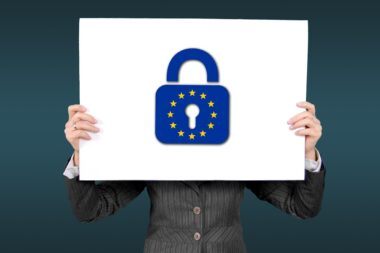How to Manage Sponsored Content to Stay Legally Compliant
In today’s digital world, influencer marketing has become a vital strategy for brands to engage consumers. However, navigating the legal compliance landscape can feel overwhelming. To ensure compliance, it’s essential to understand the regulations that govern sponsored content. This involves being aware of guidelines laid out by the Federal Trade Commission (FTC), which mandates disclosure for any form of advertising. Influencers must clearly label their posts as sponsored or include appropriate hashtags. Additionally, brand partnerships must prioritize transparency, as misleading information can damage trust and lead to legal repercussions. Companies and influencers alike must be diligent in such matters, ensuring clarity for followers. Moreover, monitoring changes in regulation is crucial. Each platform may have its own policies governing advertisements, requiring careful scrutiny and adjustment. For instance, platforms like Instagram and Twitter have specific tools for disclosure. Thus, familiarizing yourself with these tools is necessary to maintain compliance across multiple channels. Regular training for influencers on legal standards can also enhance understanding and reduce the risk of transgressions. Ultimately, an informed strategy ensures not only compliance but also the integrity of your brand and influencer relationships.
The essence of compliance in influencer marketing lies greatly within proper disclosures. Influencers must utilize transparent language when mentioning partnerships or sponsorships in their content. This is not only ethical but legally required to promote honesty. For example, using tags such as #ad or #sponsored at the beginning of a post allows audiences to quickly identify the nature of the content. This clarity fosters trust with followers, as they understand the influence of marketing tactics. Additionally, educating influencers about the implications of vague disclosures can aid in reinforcing the importance of complying with legal obligations. More specifically, some influencers have faced legal challenges due to insufficient labeling of sponsored posts. This not only tarnished their reputation but also brought their brand partners into legal scrutiny. By diligently training influencers in proper disclosure practices, brands can avert these risks and align themselves with established ethical standards. Furthermore, creating a checklist for influencers to ensure they’re following these guidelines can significantly enhance compliance. A well-managed effort in this aspect will yield reciprocal benefits, promoting a culture of honesty and transparency in influencer marketing campaigns.
Understanding the relationship between influencers and brands is crucial when considering legal compliance. The dynamics of these partnerships are often defined by contracts that outline responsibilities related to content creation and disclosure. It is essential for both parties to review these agreements thoroughly. Contracts should have clear stipulations regarding how promotions are to be disclosed. Moreover, these legal documents should reflect current laws and industry standards. Both the influencer and the brand must be aligned on the intention of the collaboration and the necessary steps for compliance. Misunderstandings can lead to significant legal issues, damaging both the influencer’s career and the brand’s reputation. Another aspect to consider is the long-term relationship potential; a transparent partnership can foster mutual brand loyalty among influencers. Therefore, emphasizing the importance of legal compliance within these agreements can help in building strong, lasting partnerships. In addition, the responsibility for compliance doesn’t solely rest on the influencers. Brands play an integral role by actively participating in conversations surrounding legal guidelines and promotional strategies. By nurturing a collaborative spirit, both influencers and brands can heighten compliance and cultivate trust with audiences.
The Importance of Educating Influencers on Legal Standards
To effectively manage sponsored content, educating influencers about legal standards is paramount. A solid training foundation will empower them to navigate complexities in compliance confidently. Starting with an overview of FTC guidelines can establish a framework for understanding legal obligations. This education must address not only what to disclose but also how to conduct themselves under various promotional circumstances. Holding regular training sessions or workshops allows influencers to stay informed about evolving regulations. Moreover, sharing real-world examples of compliance failures can underscore the potential consequences of negligence. Real-life case studies create awareness of possible legal actions, helping them understand the high stakes of the industry. Additionally, brands must provide easy access to resources such as templates for disclosures and FAQs related to compliance issues. Consistent communication is vital; thus, encouraging questions empowers influencers to seek clarification when uncertain. Furthermore, brands should continuously evaluate the effectiveness of their educational efforts based on feedback from influencers regarding understanding and implementation of compliance practices. This proactive approach to legal education creates a culture of responsibility and resilience in influencer marketing.
A key component of legal compliance in influencer marketing involves monitoring posts after they are published. Evaluating sponsored content regularly ensures that disclosures are appropriately and consistently made. This ongoing oversight also includes assessing the influencer’s adherence to brand agreements and FTC regulations. Brands should establish guidelines about how they will monitor compliance, including the tools they will use. Additionally, having a response plan in place for any issues arising from non-compliance is essential. By maintaining oversight, brands can mitigate potential risks of public backlash or legal repercussions. Furthermore, monitoring posts also presents an opportunity to gather insights into audience interactions and reception of sponsored content. An analysis of engagement metrics can reveal how effectively influencers communicate their disclosures to followers. Measuring success in this area helps brands make data-driven decisions in future campaigns. Additionally, this gauging process can strengthen the bond between brands and influencers by demonstrating a commitment to ethical practices. Thus, brands must understand that compliance is a continuous process requiring diligence from both sides. Continually refining monitoring practices ensures legal obligations are met comprehensively throughout a partnership.
Leveraging Technology for Compliance in Influencer Marketing
Leveraging technology tools is an innovative way to enhance compliance in influencer marketing. Various platforms provide solutions for tracking and managing sponsored content efficiently. Utilizing software that manages influencer collaborations can simplify workflows related to compliance. Such tools commonly provide features for monitoring campaigns, analyzing disclosures, and maintaining clear communication between brands and influencers. This centralized approach minimizes the risk of oversights regarding legal requirements. Moreover, using algorithm-driven software ensures that brands are kept up-to-date with changes in legal landscapes that could affect influencer partnerships. Gathering analytics on influencer content also aids in assessing the effectiveness of compliance measures. These insights can inform campaign adjustments or additional educational needs for influencers. Furthermore, a reliance on technology for compliance allows for better documentation of content disclosures and agreements. This thorough documentation provides a safeguard for both parties in case of any disputes. Technology not only streamlines compliance management for brands but also empowers influencers with knowledge about legal obligations. Consequently, utilizing such tools enhances efficiency while fostering a culture of transparency and accountability in influencer marketing efforts.
Finally, it is crucial to emphasize the role of trust in influencer marketing when managing sponsored content legally. Trust between brands and influencers ultimately translates into consumer relationships. If consumers perceive that disclosures are inadequately managed, they may lose confidence in both the influencer and the brand being promoted. Accordingly, maintaining transparency is not just about fulfilling legal obligations but about building credibility. Employing clear, strong disclosures reinforces accountability and nurtures long-term audience relationships. Brands must continuously encourage influencers to uphold the highest standards of ethical communication. Regularly engaging with audiences through follow-up inquiries or feedback on advertisement sentiment can strengthen this trust. Ultimately, brands should strive to create campaigns that resonate authentically with consumers while abiding by legal standards. This effort ensures that both influencers and brands benefit from genuine engagement. By fostering an environment of trust and transparency, ultimately the direction of influencer marketing can align with legal compliance seamlessly, thus promoting a positive experience for all stakeholders involved. In conclusion, balanced strategies that prioritize compliance and ethical practices can significantly enhance influencer marketing efforts.
This is another paragraph with exactly 190 words that explores the relationship technology and compliance in influencer marketing…





